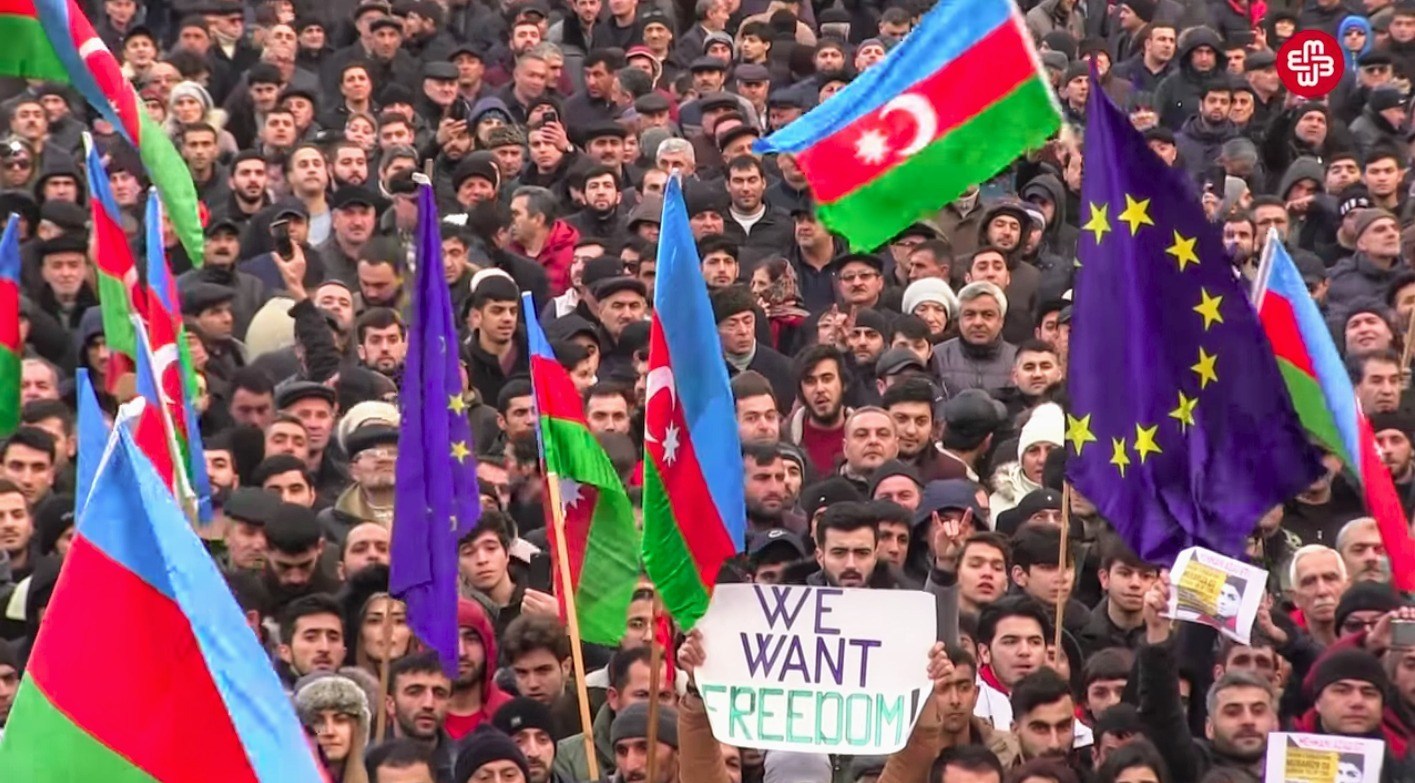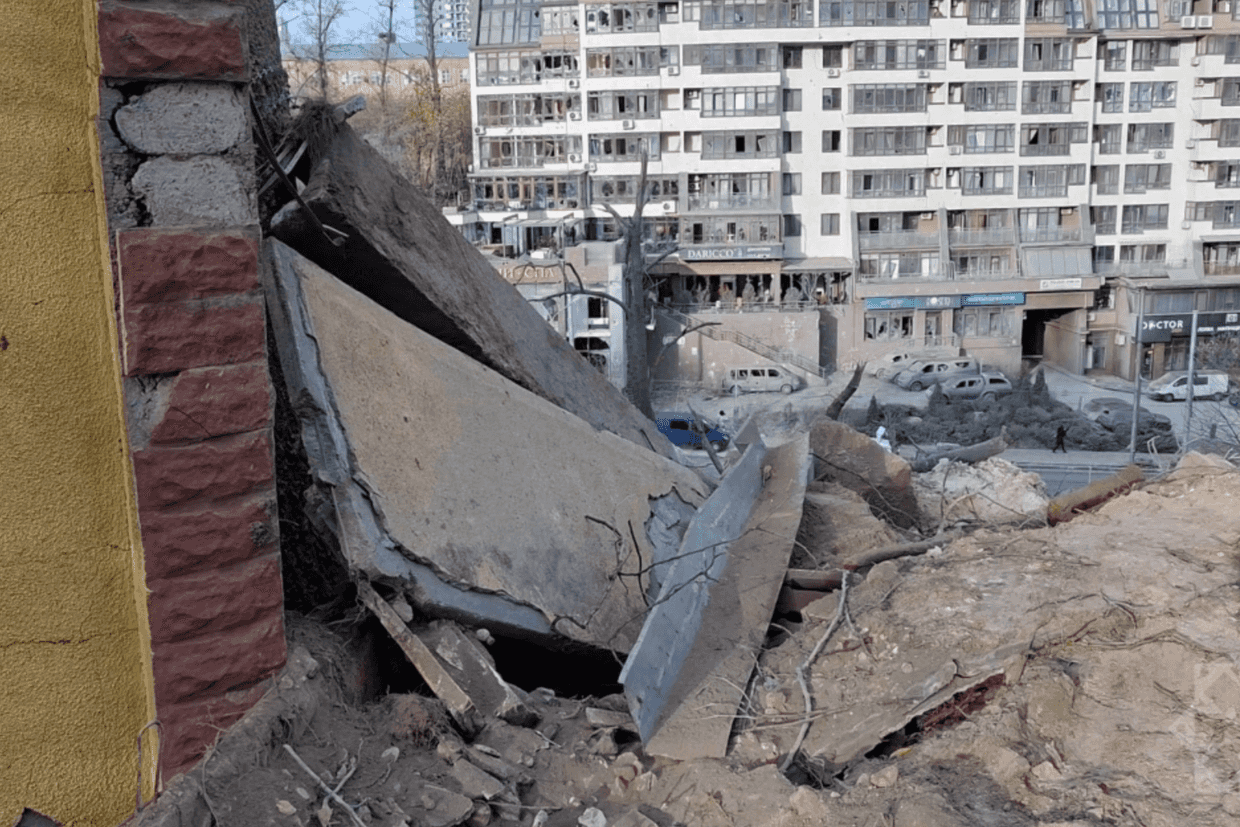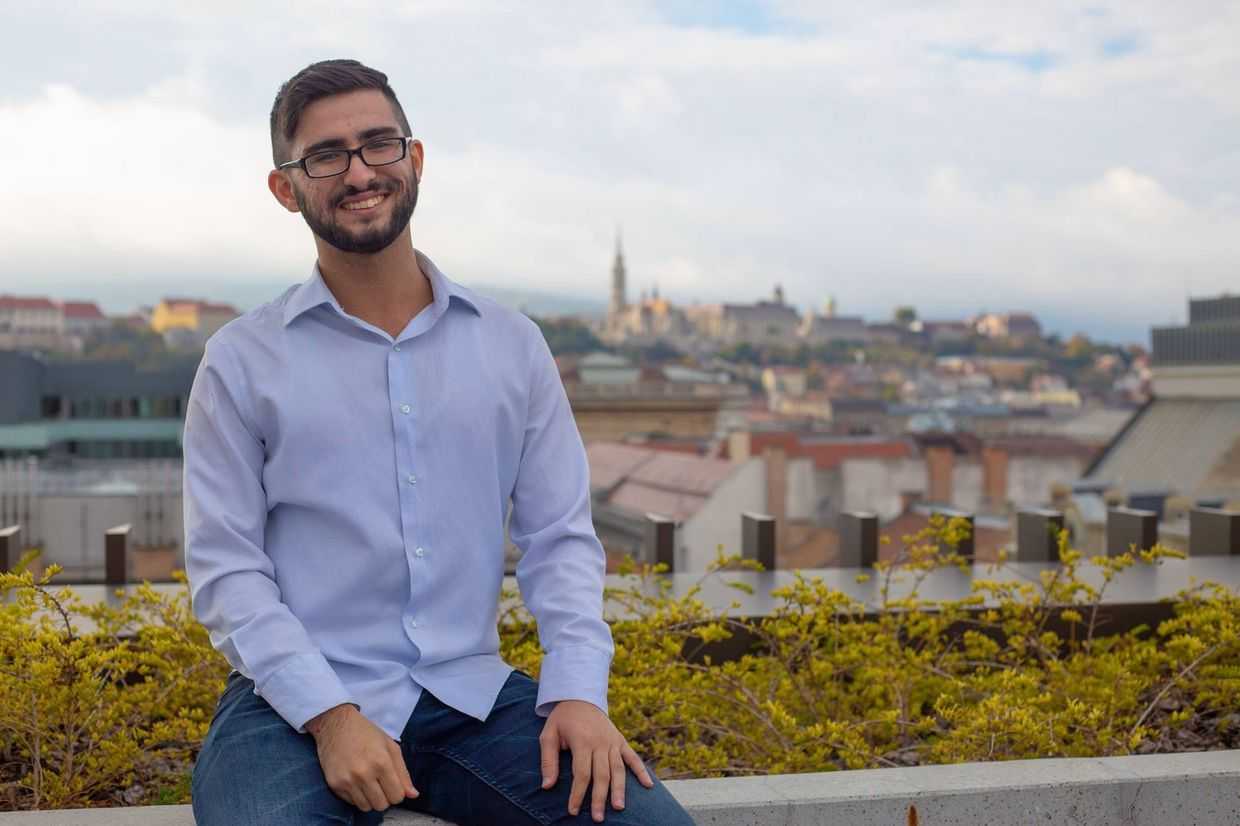

Over the past six years, Azerbaijan’s civil society has deteriorated on all fronts. As the government continues to interfere with the activities of NGOs, prosecuting human rights defenders and political activists alike, banning them from travelling abroad, and freezing their bank accounts, the sector has become paralysed.
Akif Gurbanov has headed the Institute for Democratic Initiatives since its founding in 2013. The Baku-based group was created by a group of lawyers and other public figures to ‘achieve an open society by developing democratic initiatives’.
Gurbanov has a bleak view of the current state of the country’s civil society, which he says has become inoperative.
‘Civil society cannot hold any events in the public domain. It communicates with the public via social networks or a small number of blocked [online] media outlets’, he told OC Media.
He said that legislative restrictions have caused complete paralysis in civil society and led to its alienation from the public.
Despite this, he insisted there are still some who refuse to surrender.
‘They’re trying to show that they’re still standing, with their limited resources, despite being repressed’, Gurbanov said. ‘These are more like attempts at action rather than actual actions’.
Gurbanov said that discussion of Azerbaijani civil society should not only centre around upholding international standards in its activities but should focus on the fact that its very existence is under threat.
Legal pressure
Alasgar Mammadli, an independent lawyer and media expert, told OC Media that Azerbaijan’s parliament amended several laws regulating NGOs in the wake of December 2013’s presidential elections, which cemented President Ilham Aliyev’s grip on power.
Prior to 2015, independent civil society in Azerbaijan functioned largely due to the support of foreign donors. The amendments to the Law on Grants, however, meant that donors now had to register with the authorities and each individual grant had also had to be registered and approved by the government before the beneficiary could spend it.
‘Donors were not interested in going through this procedure, so no donor applied’, Mammadli said.
Prior to the amendment, local NGOs were able to conduct financial operations even if their grants had not been approved by the authorities but after the new rules came into force many NGOs had their bank accounts frozen to prohibit them from spending non-registered grants.
International exodus from Azerbaijan
According to research by the Election Monitoring and Democracy Training Centre, an Azerbaijani pro-democracy group, the legislative changes from 2013–2015 have made it difficult to register and finance NGOs.
The resulting paralysis of civil society has led to an exodus of international organisations from Azerbaijan. Since 2015 most of the influential foreign NGOs and donor institutions have been forced to leave Azerbaijan — more than 50 international organisations have since closed their offices.
Local civil society has borne the brunt of the crackdown with access to external financial support being cut off and activists suffering intimidation and harassment.
In addition to the more than 20 restrictive amendments added to the legislation over the past few years, there have also been widespread arrests of NGO representatives and human rights defenders, criminal cases against more than 20 local NGOs and branches of foreign NGOs, high tax penalties and the freezing of NGO bank accounts.
Human rights defenders and journalists have also been banned from travelling abroad or been subject to degrading searches when crossing the border. Between 2014 and 2015, 10 Azerbaijani civil society activists and 26 journalists were banned from leaving the country and most independent NGOs claim to have suffered some form of persecution.
A 2017 report on civil society sustainability by USAID, reports that civil society organizations (CSOs) operate in a ‘severely restrained civic space’ and as a result ‘only a few independent CSOs, most of which are represented by their leaders, continued to be active in Azerbaijan at the end of the year.’
According to Gurbanov the space vacated by independent NGOs has since been filled by government-organised NGOs (GONGOs). GONGOs allow the Azerbaijani government to present an image of a thriving civil society and co-opt the usual international partners of independent NGOs.
‘Even the participation of independent civil society in events organised by the Council of Europe and the European Union has become a problem’, Gurbanov said.
Political motivation
Suggestions that the government is trying to stifle civil society has been met with vehement denials by officials.
Following a meeting with President Ilham Aliyev, in October 2015, Clare Short, Chair of the Extractive Industries Transparency Initiative (EITI) from 2011 to 2016, said in an interview with BBC Azeri, that Aliyev had linked the pressure on civil society with ‘some instability in the region.’
According to Short, President Aliyev told her that the restrictions on civil society were applied during the Maidan movement in Ukraine and during other events in the region.
The day after the interview was published, the president’s press secretary, Azar Gasimov, responded by denying Short’s account. ‘Non-governmental organisations operate freely in Azerbaijan,’ Gasimov told the BBC.
He went on to say that some NGOs in Azerbaijan ‘regularly violate the law, and NGOs themselves create a goal of personal enrichment and act contrary to other laws, which can be regarded as degrading […] civil society.’ The main goal of the government’s measures, according to Gasimov, ‘is to ensure the transparency of NGO activities’.
Azerbaijan withdraw from the EITI in 2017, following a 2016 suspension from the EITI board after having been deemed to have ‘not made satisfactory progress on civil society engagement.’
Emin Hasanli, a member of the Council of State Support to Non-Governmental Organisations under the President of the Republic of Azerbaijan, told OC Media that all the conditions needed for a functioning civil society exist in Azerbaijan and that civil society is indeed developing.
‘The president of the country [Ilham Aliyev] put forward a concept on State Support to NGOs in 2007. In 2008, the Council of State Support to NGOs was established. NGOs are already funded by the Azerbaijani government. Separate ministries can act as donors.’
Hasanli says there is no problem for NGOs that operate in line with the Constitution and who do not encourage religious radicalism or engage in discrimination. He stresses that NGOs should be transparent, accountable, and pay their taxes on a timely basis.
According Hasanli, the number of NGOs in the country is growing. ‘Every year, hundreds of NGOs register and operate through the Ministry of Justice’, he said.
Hasanli also said that legislation in this field has improved significantly, that in addition to the many local authorities, public councils have been established to facilitate cooperation between local NGOs and the authorities.
Those who criticise the state of civil society in Azerbaijan do so for political reasons Hasanli claimed. ‘They act as representatives of the opposition, rather than as NGO representatives. Many are represented in the leadership of separate opposition parties.’
Being accused of supporting the opposition is a common accusation levelled at independent civil society in Azerbaijan. But Gurbanov says the government’s fear is that the development of an independent civil society is a slippery slope towards Ukrainian-style revolution.
‘The government has decided to eliminate the dangers that might arise for this regime. These events started during the Maidan movement in Ukraine. The Azerbaijani government thought that at the centre of the events in Ukraine was civil society. Those events could happen in Azerbaijan one day. They thought that if civil society and free media were strong in Azerbaijan, then this threat would always exist for the Azerbaijani authorities.’








